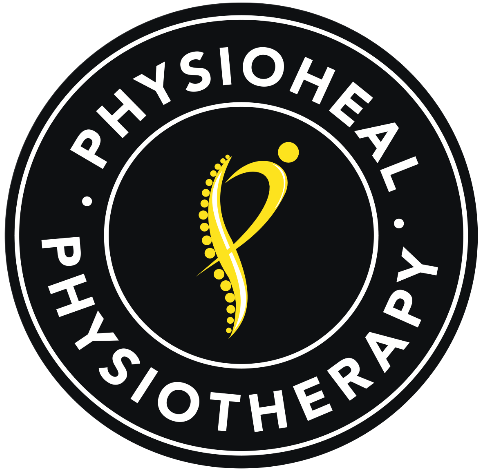We Are Open For Physical Physiotherapy in Gurgaon!
Fill the form and let us call you back.
Physical Physiotherapy for Good Health - Physioheal Physiotherapy
Physical Therapy
Physical therapy (PT) is a specialized medical field that plays a crucial role in managing movement, reducing pain, and improving the quality of life for individuals dealing with neurological diseases, traumatic injuries, and various health conditions. Skilled physical therapists assess and enhance a person’s physical function, aiming to increase mobility, prevent further injury, and alleviate disability. This comprehensive guide explores the world of physical therapy, including its symptoms, causes, diagnosis, treatment options, and the pivotal role that physiotherapy plays in the healing process.
Understanding Physical Therapy
Physical therapists are highly trained professionals who provide care across all stages of recovery, from initial diagnosis to restorative and preventive phases. Physical therapy can be a standalone treatment or complement other medical interventions. Patients may be referred to a physical therapist by a physician or seek therapy independently.
Types of Physical Therapy
Physical therapists often specialize in various types of therapy:
- Orthopedic Physical Therapy: Focusing on musculoskeletal injuries, including fractures, sprains, and chronic conditions. Treatments may involve joint mobilizations, manual therapy, strength training, and mobility exercises.
- Geriatric Physical Therapy: Aiding older adults with mobility and physical function issues, including arthritis, osteoporosis, and balance disorders.
- Neurological Physical Therapy: Assisting individuals with neurological conditions such as stroke, brain injuries, multiple sclerosis, and Parkinson’s disease. Treatments aim to improve limb responsiveness, movement patterns, strength, and balance.
- Cardiovascular and Pulmonary Rehabilitation: Beneficial for patients with heart and lung conditions, improving endurance and stamina.
- Wound Care Therapy: Ensuring proper wound healing through techniques like manual therapy, electrical stimulation, compression therapy, and wound care.
- Vestibular Therapy: Addressing balance problems associated with inner ear conditions through specialized exercises and manual techniques.
- Decongestive Therapy: Draining accumulated fluid, particularly in lymphedema patients.
- Pelvic Floor Rehabilitation: Treating conditions affecting the pelvic floor, such as incontinence and pelvic pain.
Roles of a Physical Therapist
According to the World Confederation for Physical Therapy, a physical therapist is equipped to:
- Conduct Thorough Evaluation: Physical therapists perform comprehensive physical examinations, assessing movement, flexibility, muscle and joint function, and medical history.
- Provide Clinical Diagnosis: They offer clinical diagnoses, prognoses, and personalized care plans with short- and long-term goals.
- Administer Treatment: Physical therapists deliver a wide range of treatment and interventions.
- Offer Self-Management Guidance: This includes prescribing home exercises and self-care recommendations.
Treatment Modalities
Physical therapy treatments extend beyond physical manipulation and may include:
- Iontophoresis: Using electrical currents to administer medications, reducing inflammation.
- Electrical Stimulation (E-Stim): Two types—Transcutaneous electrical nerve stimulation (TENS) for pain reduction and neuromuscular electrical stimulation to enhance muscle engagement.
- Heat and Cold Therapy: Providing benefits for various conditions.
- Light Therapy: Utilizing specialized lights and lasers for medical treatment.
Conditions Addressed by Physical Therapy
Physical therapists can provide supplementary treatment for a wide array of medical conditions, depending on their specialization. While they may not directly treat non-musculoskeletal conditions, they optimize recovery and educate patients on improving movement patterns. Conditions that may benefit from physical therapy include:
- Cardiopulmonary conditions (e.g., COPD, cystic fibrosis, heart failure)
- Hand-related issues (e.g., carpal tunnel syndrome, trigger finger)
- Musculoskeletal dysfunction (e.g., back pain, rotator cuff tears, TMJ disorders)
- Neurological conditions (e.g., stroke, spinal cord injuries, Parkinson’s disease)
- Pediatric conditions (e.g., cerebral palsy, muscular dystrophy)
- Sports-related injuries (e.g., concussions, tennis elbow)
- Women’s health and pelvic floor dysfunction (e.g., urinary incontinence, lymphedema)
- Skin conditions or injuries (e.g., burns, wound care, diabetic ulcers)
Benefits of Physical Therapy
The advantages of physical therapy vary depending on the individual’s needs and medical history. These benefits may include:
- Pain Management: Reducing the need for opioids.
- Avoiding Surgery: Exploring non-invasive alternatives.
- Improved Mobility: Enhancing movement and function.
- Recovery from Injury or Trauma: Supporting healing and rehabilitation.
- Recovery from Stroke or Paralysis: Restoring independence.
- Fall Prevention: Reducing the risk of accidents.
- Improved Balance: Enhancing stability.
- Management of Age-Related Issues: Addressing common medical problems associated with aging.
Pediatric Physical Therapy
Pediatric physical therapy focuses on diagnosing, treating, and managing conditions affecting infants, children, and adolescents. This includes developmental delays, cerebral palsy, spina bifida, torticollis, and musculoskeletal issues. Pediatric physical therapists work collaboratively with young patients and their families to improve mobility, alleviate pain, restore function, and prevent permanent disabilities.
Conclusion
Physical therapy is a valuable resource for individuals facing injuries, disabilities, or health conditions. To explore the benefits of physical therapy or seek treatment, please consult Dr. Divya Gaur at Physioheal Physiotherapy Gurgaon. Our dedicated team is ready to assist you on your path to recovery. To book a full assessment with one of the specialist physiotherapists, please call Physioheal on +91-9999259307 today. Alternatively, book an appointment online with us today!
